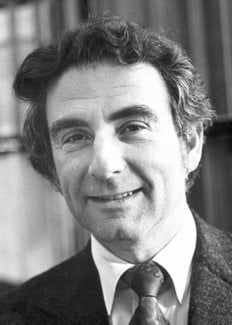Leon N. Cooper – Biographical (original) (raw)

Leon Cooper was born in 1930 in New York where he attended Columbia University (A.B. 1951; A.M. 1953; Ph.D. 1954). He became a member of the Institute for Advanced Study (1954-55) after which he was a research associate of Illinois (1955-57) and later an assistant professor at the Ohio State University (1957-58). Professor Cooper joined Brown University in 1958 where he became Henry Ledyard Goddard University Professor (1966-74) and where he is presently the Thomas J. Watson, Sr. Professor of Science (1974-).
Professor Cooper is Director of Brown University’s Center for Neural Science. This Center was founded in 1973 to study animal nervous systems and the human brain. Professor Cooper served as the first director with an interdisciplinary staff drawn from the Departments of Applied Mathematics, Biomedical Sciences, Linguistics and Physics. Today, Cooper, with members of the Brown Faculty, postdoctoral fellows and graduate students with interests in the neural and cognitive sciences, is working towards an understanding of memory and other brain functions, and thus formulating a scientific model of how the human mind works.
Professor Cooper has received many forms of recognition for his work in 1972, he received the Nobel Prize in Physics (with J. Bardeen and J.R. Schrieffer) for his studies on the theory of superconductivity completed while still in his 20s. In 1968, he was awarded the Comstock Prize (with J.R. Schrieffer) of the National Academy of Sciences. The Award of Excellence, Graduate Faculties Alumni of Columbia University and Descartes Medal, Academie de Paris, Université Rene Descartes were conferred on Professor Cooper in the mid 1970s. In 1985, Professor Cooper received the John Jay Award of Columbia College. He holds seven honorary doctorates.
Professor Cooper has been an NSF Postdoctoral Fellow, 1954-55, Alfred P. Sloan Foundation Research Fellow, 1959-66 and John Simon Guggenheim Memorial Foundation Fellow, 1965-66. He is a fellow of the American Physical Society and American Academy of Arts and Sciences; Sponsor, Federation of American Scientists; member of American Philosophical Society, National Academy of Sciences, Society of Neuroscience, American Association for the Advancement of Science, Phi Beta Kappa, and Sigma Xi. Professor Cooper is also on the Governing Board and Executive Committee of the International Neural Network Society and a member of the Defense Science Board.
Professor Cooper is Co-founder and Co-chairman of Nestor, Inc., an industry leader in applying neural-network systems to commercial and military applications. Nestor’s adaptive pattern-recognition and risk-assessment systems simulated in small conventional computers learn by example to accurately classify complex patterns such as targets in sonar, radar or imaging systems, to emulate human decisions in such applications as mortgage origination and to assess risks.
This autobiography/biography was written at the time of the award and first published in the book series Les Prix Nobel. It was later edited and republished in Nobel Lectures. To cite this document, always state the source as shown above.
Leon Cooper died on 23 October 2024.
Back To Top Takes users back to the top of the page
Six prizes were awarded for achievements that have conferred the greatest benefit to humankind. The 12 laureates' work and discoveries range from proteins' structures and machine learning to fighting for a world free of nuclear weapons.
See them all presented here.
Select the category or categories you would like to filter by
Select the category or categories you would like to filter by
Physics
Chemistry
Medicine
Literature
Peace
Economic Sciences
Decrease the year by one Choose a year you would like to search in Increase the year by one

